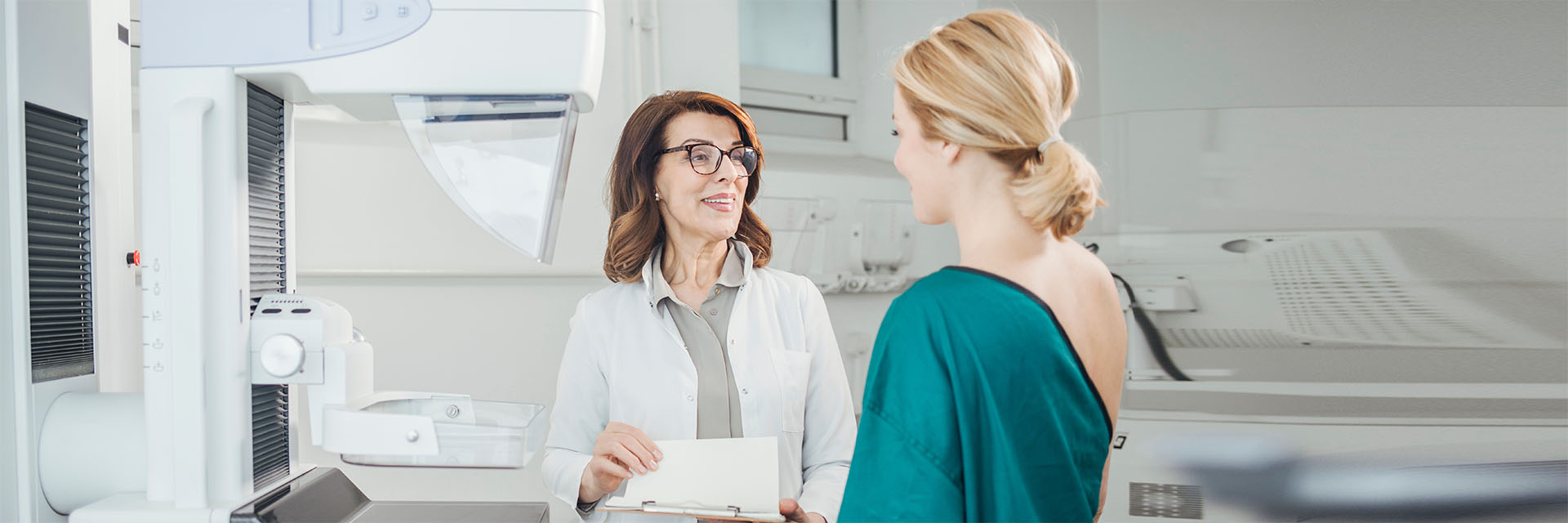Breast cancer is the most commonly diagnosed cancer globally and accounted for an estimated 30% of newly diagnosed cancers in American women in 2022. Breast cancer is also one of the leading causes of cancer-related death in women in the United States, second only to lung cancer.
Mammograms have been a helpful tool in the early detection of breast cancer, leading to faster treatment and better outcomes. In the past, screening was recommended for women starting at age 50, with a recommendation that women in their 40s speak with their doctor about personal risk factors that may require earlier screening. However, based on findings from a study published in April 2023 in JAMA Oncology, the U.S. Preventive Services Task Force (Task Force) is now recommending that all women of average risk start getting regular mammograms at age 40 instead of 50.
This change opens the door up for 20 million more women to consider earlier screening, with the potential to save 19% more lives, according to the Task Force.
The Driving Force
Higher breast density has long been linked with a greater risk for breast cancer. In fact, among people between the ages of 40 and 49, dense breasts are associated with a two-fold greater risk of cancer.
Dense breast tissue is normal breast tissue that is denser and therefore appears white on a mammogram. Because of this, dense breast tissue decreases the sensitivity of mammograms, making them harder to interpret or detect issues that may warrant more testing. It is also an independent risk factor for developing breast cancer.
Beyond making existing breast cancer harder to detect, dense breast tissue is also known to increase your risk of breast cancer, but, previously, doctors and researchers weren’t entirely certain why. However, this new study, which followed women who attended breast screenings for a decade, was the first to track changes in breast density over time, and researchers found a correlation between the two.
Typically, as women age, breast density tends to decline. But researchers found that a slower decline in one breast may indicate a higher risk of cancer. While all of the 947 JAMA study participants experienced a decrease in breast density over the study period, in the 289 women who developed cancer, the affected breast had a slower change in breast density.
The researchers analyzed a decade's worth of mammograms to show that a slower rate of decline in breast density over time is associated with an increased risk of breast cancer.
By receiving regular mammograms sooner, researchers hope this will allow doctors a larger window of time to monitor density changes and assess individual breast cancer risk in patients.
Risk Factors for Dense Breast Tissue
Dense breast tissue is common and affects nearly half of all women over 40. However, some women are more prone than others.
You may be more likely to have dense breasts if you:
- Are younger: While breast tissue tends to become less dense as you age, some women may have dense breast tissue at any age.
- Have a lower body mass index: Women with less body fat are more likely to have more dense breast tissue.
- Take hormone therapy for menopause: Women who take combination hormone therapy to relieve signs and symptoms of menopause are more likely to have dense breasts.
- Are Black: Black women tend to have denser breasts than women of other racial or ethnic backgrounds.
- Have a family history: Breast density is often inherited.
The Takeaway
It’s important to remember that there are various factors that can play a role in the development of breast cancer and dense breast tissue is just one. Additionally, breast cancer can occur even in low-risk women.
If you have been told by your doctor that you have dense breasts or you’re concerned, don’t be afraid to ask your doctor or nurse what these findings mean, if you may need additional screening or diagnostic tests, and what this may mean for your overall risk of breast cancer.
Nervous for your first mammogram? You’re not alone. Learn what to expect.
Cost or access to care should never be a deterrent. Many organizations in North Texas help with free or low-cost mammography. Texas Health offers Mobile Health Screening Mammograms that goes to locations throughout the Dallas – Fort Worth community.
To schedule a mammogram at a Texas Health facility, visit TexasHealth.org/BreastCare. Early morning, evening and Saturday appointments available at most locations.

